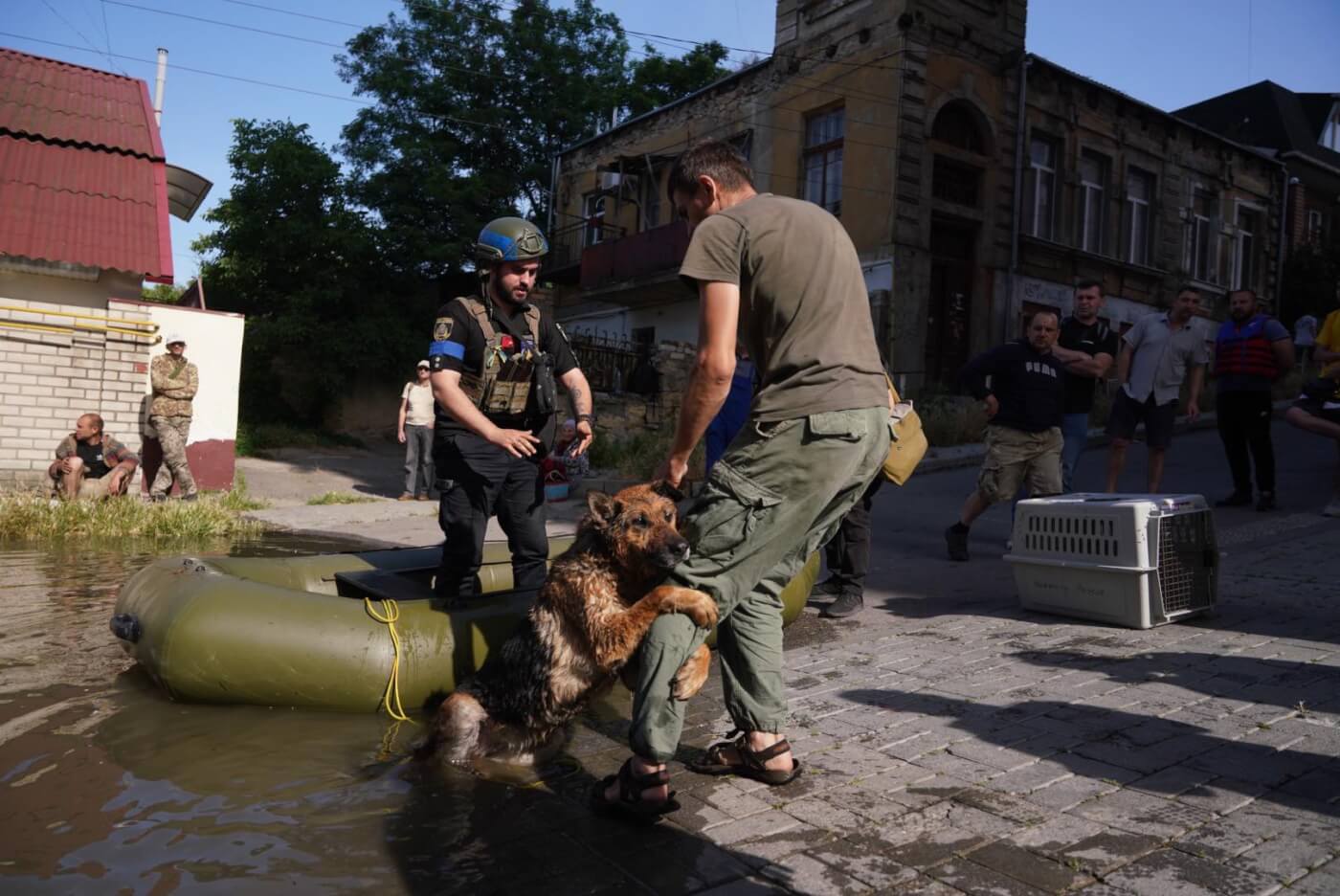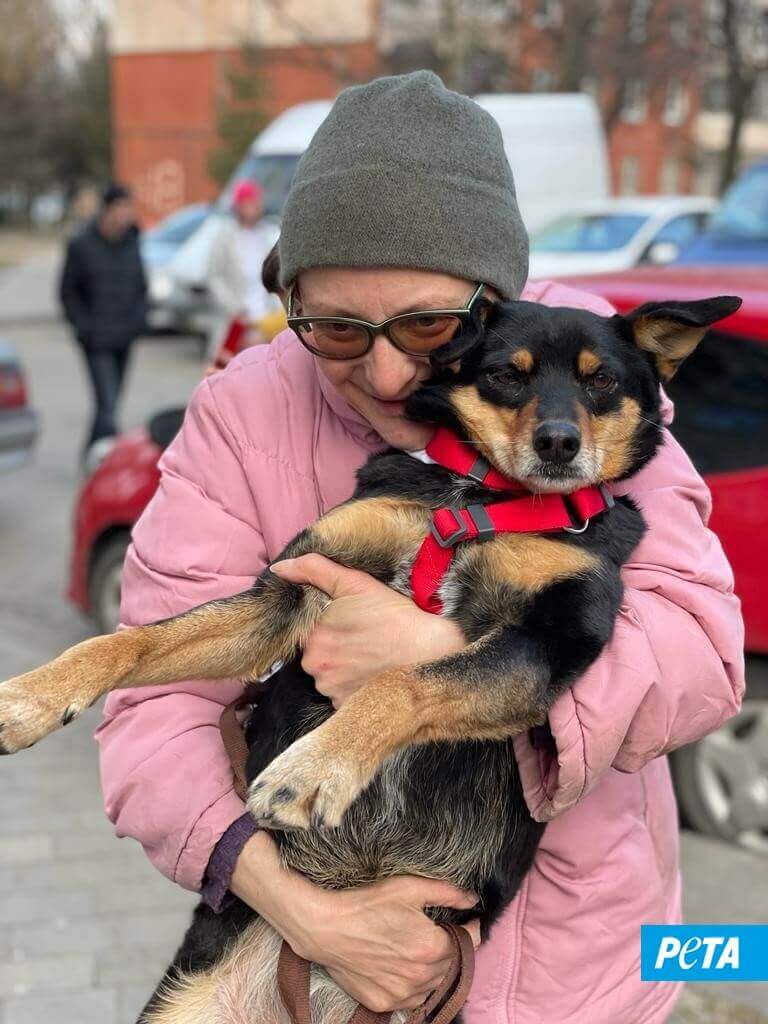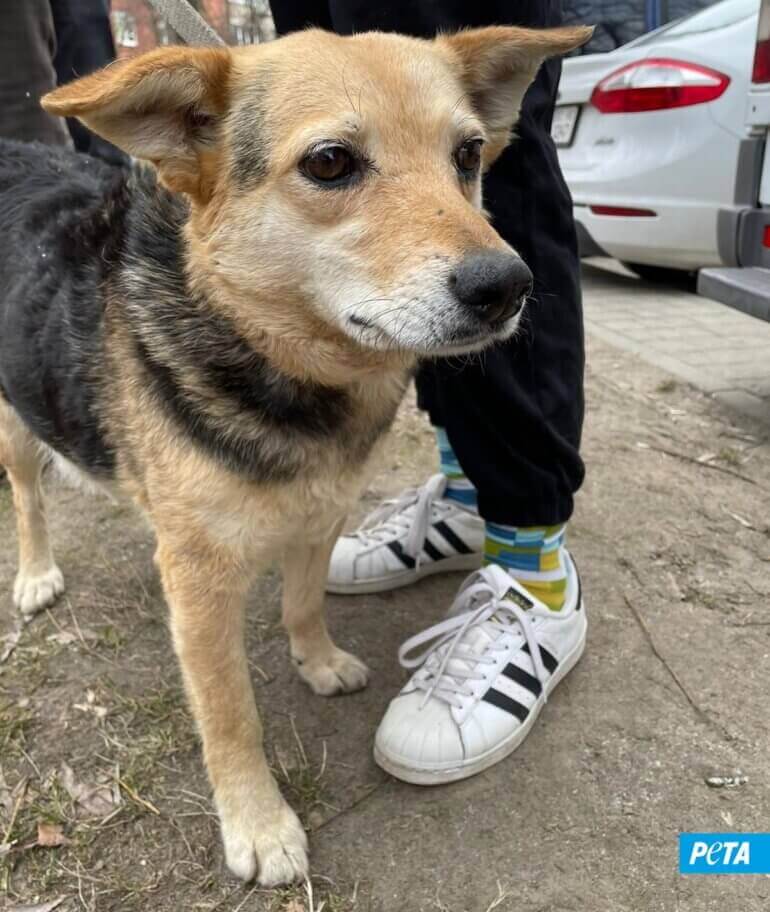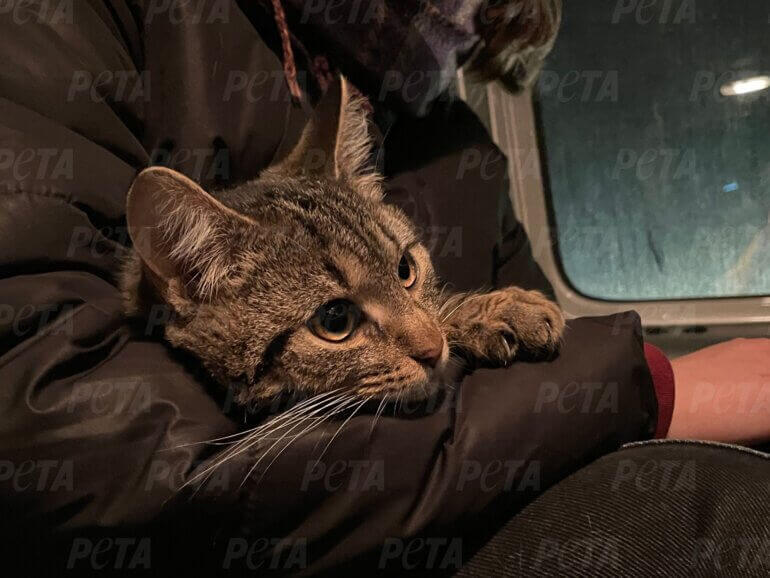Ukraine Updates
March 9, 2022

Since just days after the war in Ukraine started in February 2022, PETA Germany and its partners have been risking it all to save animals in need. From flooding to missile strikes, Global Compassion Fund–backed teams have risked it all to help Ukraine’s animals. Meet some of the beautiful souls who now have a second chance at life because of your support.

“There’s no time to lose when animals need us.”
It’s become the unofficial motto of PETA Germany’s Ukraine rescue team, a group of activists who have already completed three successful rescue missions—and they’ve now hit the road, headed for Lviv, Ukraine, determined to knock out a fourth.
“It’s a tough journey, as the road is covered with ice and it’s been snowing all night. We are driving carefully from Poland and hope to arrive soon, as more animals are waiting for us. This time, we are going to pick up almost 90 cats and dogs,” a team member reports. These animals all come from a shelter in Kyiv, on the other side of Ukraine. Other brave activists have traveled more than 300 miles to help bring them to safety.
To date, PETA Germany has rescued more than 200 cats and dogs in Ukraine.

One of them is Mishka, pictured above. She and her friend Rouzha (below) were living on the streets of Lviv. A kind local woman (above) had fed and cared for both dogs for many years. She was in tears when she met PETA Germany’s team—at once sad to part with her friends and enormously happy and relieved to know that Mishka and Rouzha would be safe and would spend the rest of their lives in a loving home.

And not only dogs are being rescued—just look how grateful this cat is to his human rescuer!

All these cats and dogs are getting the care they need and will soon be vaccinated and spayed or neutered, and then they’ll be ready to move to their permanent homes.
Donate Now!
PETA’s Global Compassion Fund is supported exclusively by the contributions of kind individuals like you. Your gift is helping PETA entities and partners create positive, sustainable change in corners of the Earth where animals desperately need assistance—and may have no other hope.
